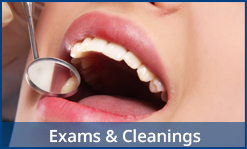Imagine the sharp jab of a toothache, the uncomfortably tender sensation of swollen gums, or the embarrassment of persistent bad breath. We’ve all encountered these seemingly minor annoyances, but have you ever considered they might be more than just passing discomfort?
They could be your body’s subtle whispers, warning you of potential oral health issues. If ignored, these whispers could transform into roars of serious complications. Now, you might ask, ‘When should I really worry?’ Stay with us as we unravel the tell-tale signs that it’s high time to visit your dentist.
Persistent Tooth and Gum Pain
If you’re experiencing persistent tooth or gum pain, especially when chewing or applying pressure, it’s a clear sign that a visit to the dentist is necessary. Tooth pain can be indicative of various underlying dental issues. It could signal a simple cavity or a more severe problem like an abscessed tooth. We can’t stress enough the importance of seeking professional treatment to alleviate chronic discomfort and prevent further complications.
Additionally, gum pain isn’t to be taken lightly. It might be a symptom of gum disease, one of the leading causes of tooth loss in adults. Swollen or inflamed gums are often the body’s response to infection, necessitating a dental evaluation. Chronic gum pain, coupled with tenderness, is a red flag you shouldn’t ignore.
If you’re dealing with a continuous throbbing or aching tooth pain, even if it temporarily subsides, it warrants immediate attention. Unexplained and ongoing discomfort in your teeth or gums, regardless of the intensity, is a clear indicator that a dental visit is imminent. Remember, early detection and treatment are critical for maintaining good oral health.
Unexplained Mouth Sores
When it comes to unexplained mouth sores, particularly those lasting a week or longer, it’s important to seek dental attention as they may point to underlying oral health issues. Mouth sores aren’t just annoying; they can be a sign of more serious conditions. Infections, viruses, or other underlying dental issues could be the culprits causing these sores.
Different types of mouth sores, such as canker sores and cold sores, might signal potential problems. For instance, a condition known as leukoplakia can lead to white patches inside the mouth, and it’s often linked to oral cancer. It’s essential to not overlook these signs and seek immediate dental advice.
Persistent mouth sores might be symptomatic of oral cancer, a serious health concern. It’s imperative to have these sores checked out by a professional to rule out any possibility of cancer.
To summarize, if you’re dealing with mouth sores that won’t go away, don’t delay in scheduling a dental appointment. Timely treatment is essential to maintaining your oral health and catching any potential issues early on. Consulting a dentist for a proper diagnosis and treatment plan is your best course of action.
Chronic Bad Breath Issues
Plagued by chronic bad breath, also known as halitosis, you might be dealing with underlying dental issues like gum disease or tooth decay. If you’ve noticed your breath doesn’t improve, even with rigorous oral hygiene, it’s time vital that a more serious health problem could be the underlying cause. Conditions such as uncontrolled diabetes and acid reflux can contribute to bad breath, alongside oral health issues.
We can’t emphasize enough the importance of not ignoring chronic bad breath. Masking it with mouthwashes or mints may offer temporary relief, but without addressing the root of the problem, you’re likely to face ongoing issues. Remember, bad breath isn’t just an inconvenience. It’s often a sign that something’s not right with your oral health.
Consultation with one of our dentist at Family Dental of Teravista is essential. A thorough examination can identify if gum disease or tooth decay is causing your halitosis. A personalized treatment plan can then be developed to address the issue. By addressing chronic bad breath at its source, we can help you regain confidence in your oral hygiene and overall health.
Sensitivity to Hot and Cold
Moving on from bad breath, another common oral health issue that shouldn’t be ignored is sensitivity to hot and cold. This sensitivity to temperatures can be quite discomforting and is often a sign of underlying dental problems.
One such issue could be tooth decay, which when reaching the tooth center, can cause new sensitivity to both hot and cold. This may also be a sign of cavities, which if addressed early, can prevent worsening sensitivity to temperatures or sweets.
Another potential cause is teeth grinding, a habit that often leads to tooth sensitivity. It can cause discomfort when you consume hot or cold foods, and it’s not something you should overlook.
Regardless of the cause, a dental evaluation is necessary to determine why you’re experiencing increased sensitivity. We can’t stress enough how important it’s to have regular check-ups. They allow us to diagnose and treat these issues before they escalate.
Trouble Chewing or Swallowing
Switching gears, let’s explore the issue of having trouble chewing or swallowing, a problem that’s more than just an inconvenience—it could signify underlying dental issues. If you find yourself persistently struggling with these actions, it’s time to seek professional help. Difficulty in chewing or swallowing isn’t a normal occurrence and may be a warning sign of serious dental concerns that need immediate attention.
One potential way to alleviate discomfort might be consuming soft foods or liquids before your dental evaluation. However, it’s paramount not to ignore these symptoms or delay your visit to the dentist. We can’t emphasize enough how critical a timely dental evaluation is for any problems related to chewing or swallowing.
Dentists have specific training and experience to accurately diagnose and address these issues. Early intervention can prevent the condition from worsening, minimizing long-term damage and discomfort. By promptly identifying and treating the underlying dental problems, you can return to eating and drinking without discomfort or fear.
Frequent Dry Mouth Symptoms
While trouble with chewing or swallowing is a clear call to visit the dentist, enduring frequent dry mouth symptoms is another sign not to be overlooked. Dry mouth, a critical condition, can have serious implications for oral health. Additionally, it’s more than just a temporary inconvenience; it can lead to discomfort, difficulty in speaking, and even an altered sense of taste.
Saliva plays an essential role in maintaining our oral health. It helps neutralize acids and wash away food particles, thereby reducing the risk of tooth decay. A lack of it, hence, can be detrimental, increasing the risk of oral health issues. Persistent dry mouth can also be indicative of certain medical conditions, medications, or genetic factors.
Restoring moisture in the mouth is vital to alleviate these symptoms and prevent further complications. Dentists can provide personalized recommendations to restore this much-needed moisture, helping you maintain good oral health. Regular dental visits are essential to diagnose and manage this condition effectively. Don’t let a dry mouth go unattended; it’s a clear sign you need to visit the dentist.
Regular Check-ups Importance
In the journey of maintaining good oral health, regular dental check-ups play a crucial role. These visits aren’t merely about keeping our teeth sparkling clean, but they’re essential for the early detection of potential problems.
By visiting the dentist regularly, we guarantee:
- Prevention of gum disease and decay, key contributors to tooth loss and discomfort.
- Early detection of dental issues that may otherwise go unnoticed until they become severe.
- Swift identification and treatment of any oral health concerns, reducing the likelihood of complications.
- Financial savings in the long run, as early intervention can prevent the need for more extensive, costly treatments.
- Maintenance of a beautiful, healthy smile which boosts our confidence and overall well-being.
Neglecting regular check-ups can lead to undetected issues, which might escalate into serious conditions. So, don’t wait until you’re in pain or discomfort to see your dentist. Prioritize your oral health by scheduling regular dental visits. Remember, prevention is always better than cure, especially when it comes to our teeth and gums.
Conclusion
Never disregard the signals your mouth is giving you. More than just ensuring a fresh breath and a radiant smile, it’s about maintaining your overall health.
Always remember, preventive measures are far better than finding a cure. Therefore, if you’re encountering any of the symptoms mentioned, don’t hesitate to get in touch with us at Family Dental Teravista in Goergetown.
We’re prepared to assist you in keeping your smile healthy and radiant.
After all, your pearly whites deserve the best care. Don’t wait, contact us today for an appointment and let’s give your smile the royal treatment it deserves.













